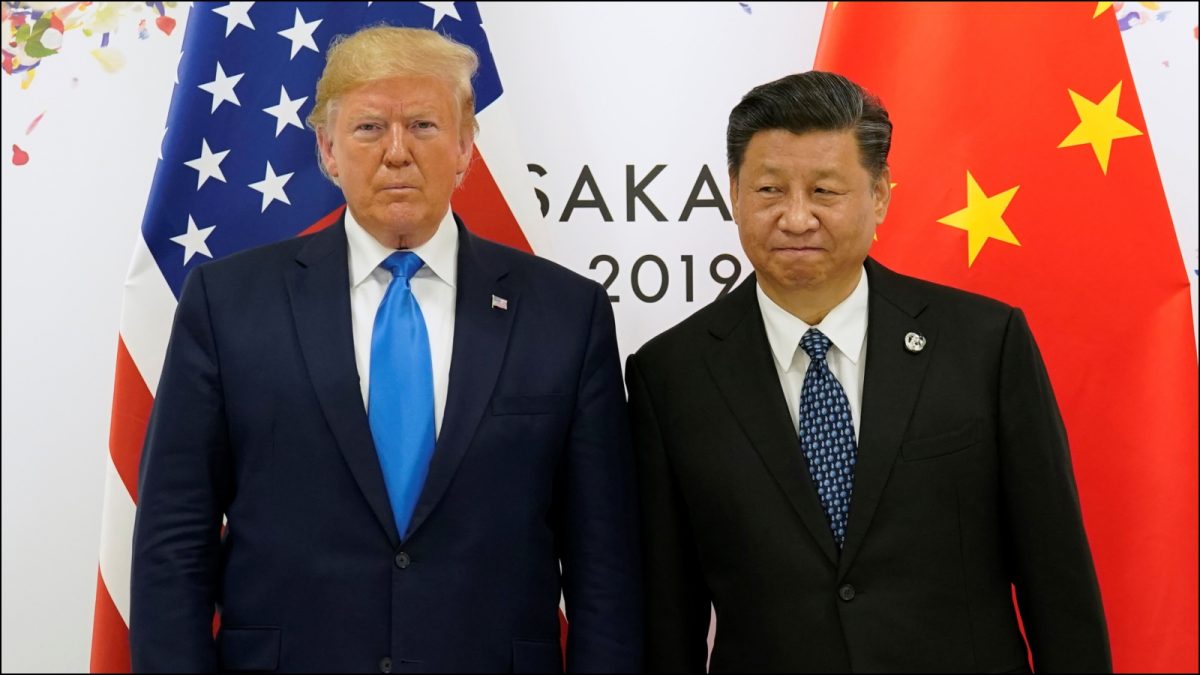Last Updated:
China opposed the 10% tariffs imposed by Trump, saying it would challenge the decision at the World Trade Organisation (WTO) citing a violation of international trade rules.
Donald Trump is expected to speak to Xi Jinping amid a growing trade war between the two countries. (Reuters/File)
US-China Trade War: After Canada and Mexico, China has imposed retaliatory tariffs on imports from the United States after US President Donald Trump placed an additional 10% tariffs on Chinese imports with the stated goal of stopping the production of the fatal drug fentanyl.
China on Tuesday said it would slap 10% tariffs on American imports of crude oil, agricultural machinery and large-displacement vehicles and pickup trucks. It will also impose a 15% tariff on coal and liquefied natural gas from the US, said the Chinese foreign ministry.
That “unilateral tariff hike”, Beijing said, “seriously violates World Trade Organisation rules, does nothing to resolve its own problems, and disrupts normal economic and trade cooperation between China and the United States”.
These tariffs will come into force from next Monday, said the Chinese ministry. While Trump paused tariffs on Canada and Mexico after reaching an agreement with the leaders of the two countries, the 10% tariff that he ordered on China is still set to go into effect as scheduled on Tuesday, though Trump planned to talk with Chinese President Xi Jinping in the next few days.
ALSO READ: How Trump’s New Tariffs On Canada, China, Mexico Can Upend Global Economy, Impact On India Explained
The White House on Monday said Trump will speak to his Chinese counterpart “within the next couple of days”, marking the first major diplomatic exchange as the two superpowers seek to avoid a larger trade war.
More Tariffs Against China On The Cards?
Trump’s promised tariffs paved the way for a trade showdown between the US and China amid increased tensions between the two countries. China has reiterated its threat to take “necessary countermeasures to defend its legitimate rights and interests”.
China says the US action violates World Trade Organisation rules and has vowed to bring a case before the body that governs global commerce. “China calls on the United States to correct its wrongdoings, maintain the hard-won positive dynamics in the counternarcotics cooperation, and promote a steady, sound and sustainable development of China-US relationship,” said the Chinese foreign ministry in a statement.
Trump accuses China of allowing the production of fentanyl, which is then made into tablets in Mexico and smuggled into and distributed throughout the US, which records some 70,000 overdose deaths from the drug annually. However, China insists that it is one of the toughest countries on counter-narcotics.
The US president also indicated that more import taxes could be coming against China: “If we can’t make a deal with China, then the tariffs will be very, very substantial.” Tariffs would make Chinese goods more expensive for US consumers, who will ultimately have to pay a significant part of the cost of importing everything from toys to clothing.
US-China Trade Relations
Trade between China and the United States — the world’s two largest economies — is vast, totalling more than $530 billion in the first 11 months of 2024, according to Washington. Over that same period, sales of Chinese goods to the United States totalled more than $400 billion, second only to Mexico.
However, China’s enormous trade deficit with the US, which reached nearly $1 trillion last year, has been a constant target of Trump’s complaints. So has China’s vast state support for its industries, sparking accusations of dumping, as well as its perceived mistreatment of US firms operating in its territory.
Furthermore, the US has blamed China for an “opioid epidemic” regarding fentanyl trafficking. Fentanyl is a potent synthetic opioid drug used as an anaesthetic that is highly addictive and has reportedly contributed to hundreds of thousands of deaths in the US. Government reports said this drug was trafficked from China.
Experts warn that the impact of the tariffs could affect the economies of Canada, Mexico and China, as well as the US itself. Multiple analyses by the Tax Foundation, the Tax Policy Centre and the Peterson Institute for International Economics showed that the tariffs could hurt growth, lower incomes and push up prices.
(with inputs from agencies)


